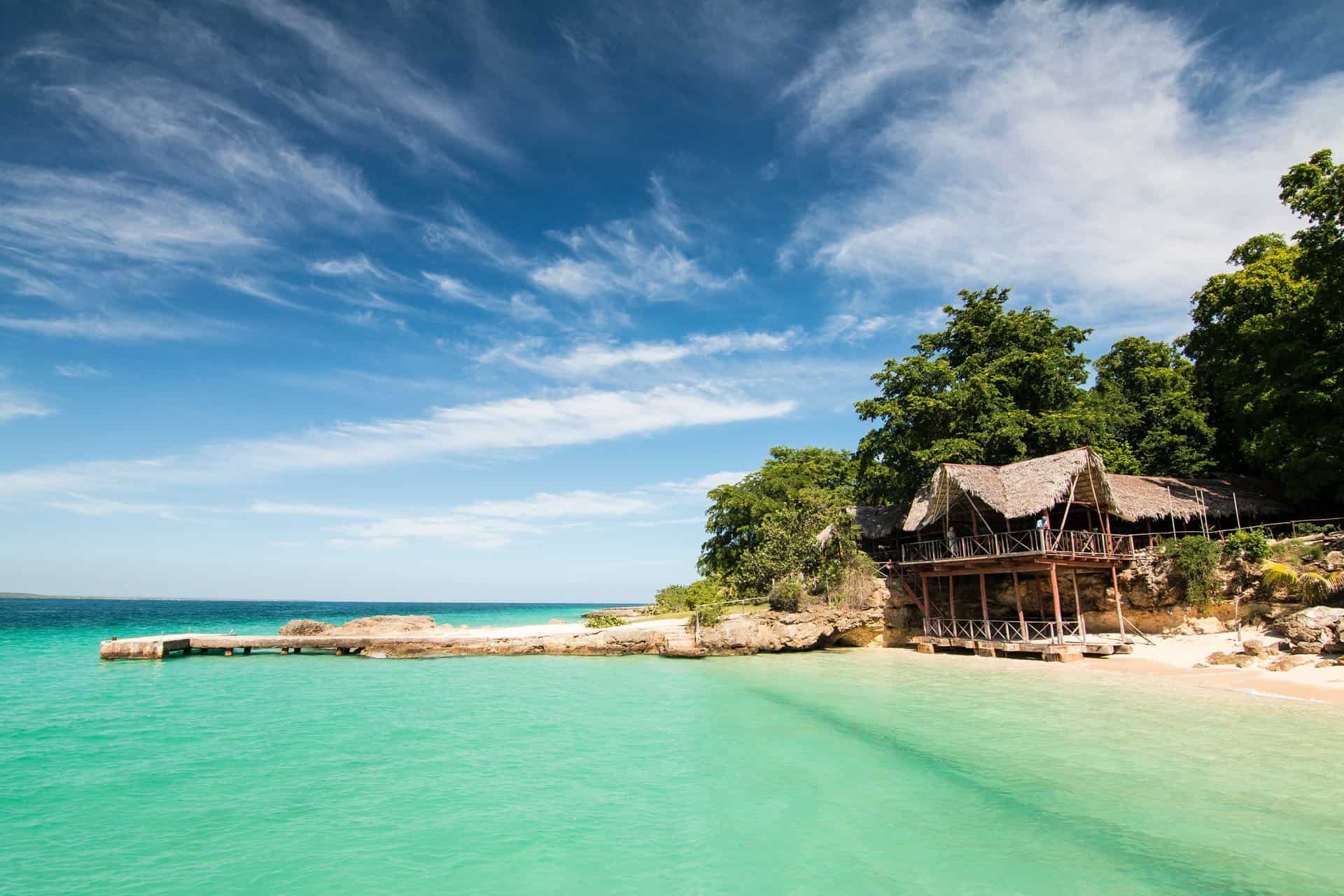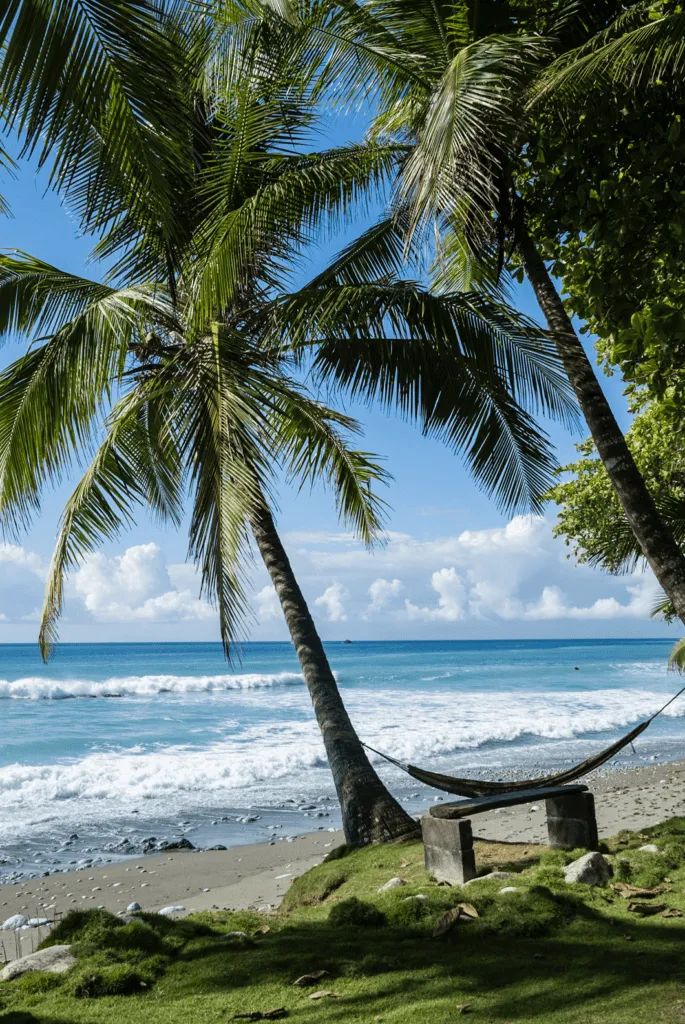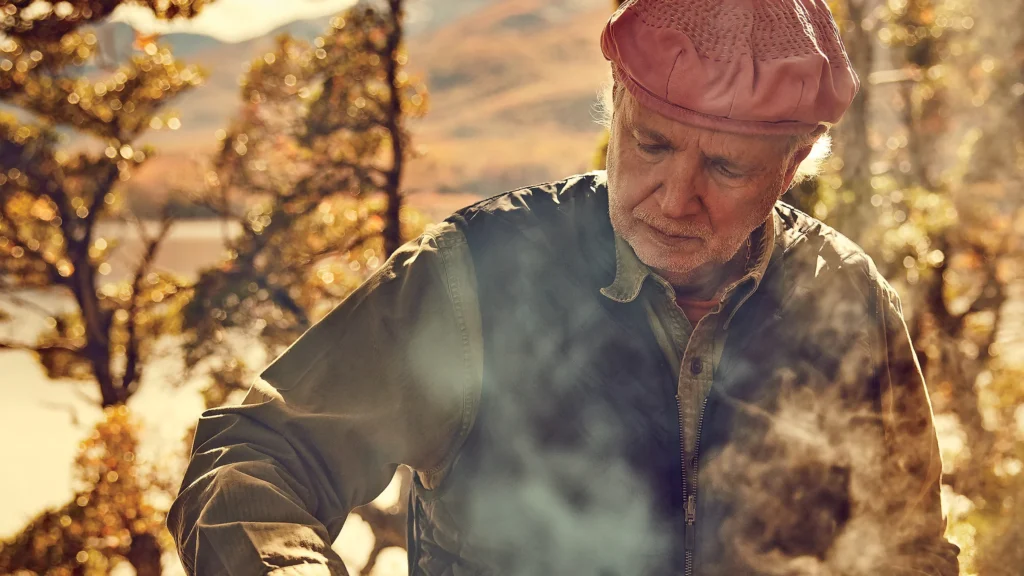
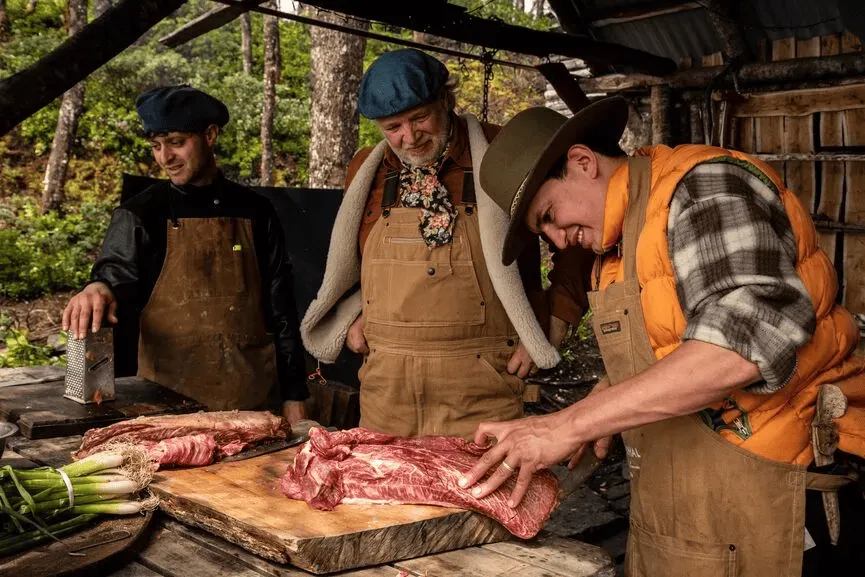
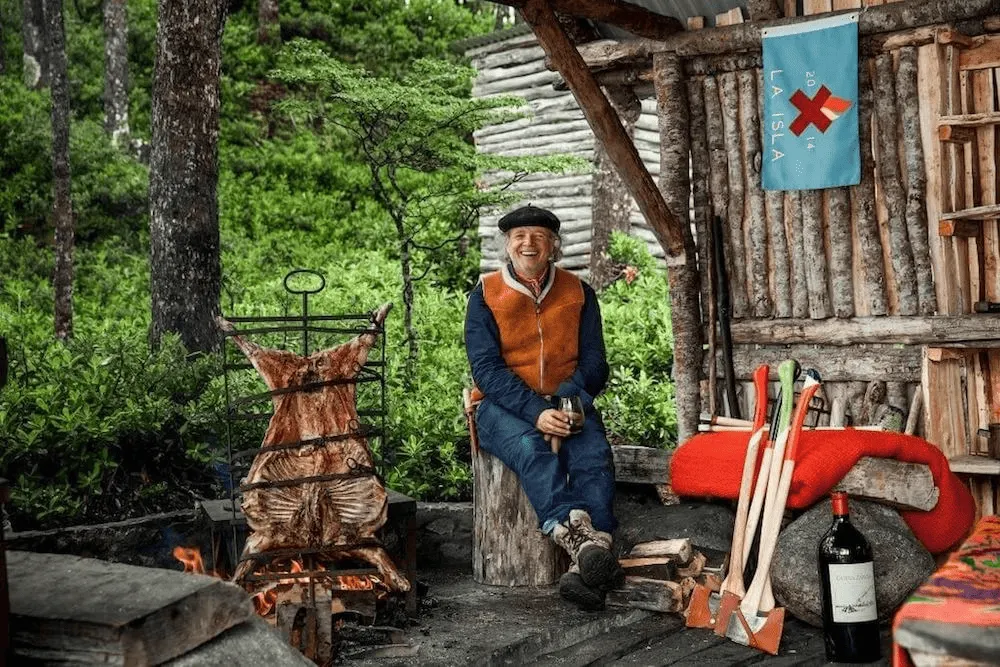
Francis Mallmann is an Argentine chef, known as much for his bohemian, nomadic lifestyle as for his flare with smoke and fire.
A firebrand with a philosopher’s mind and a poet’s turn of phrase, he has spent decades refining the art of woodsmoke and embers, throwing out the rulebook in favour of something altogether more elemental.
Here, we take a closer look at the man behind the flames, his extraordinary journey, and the philosophy that sets his cooking apart.
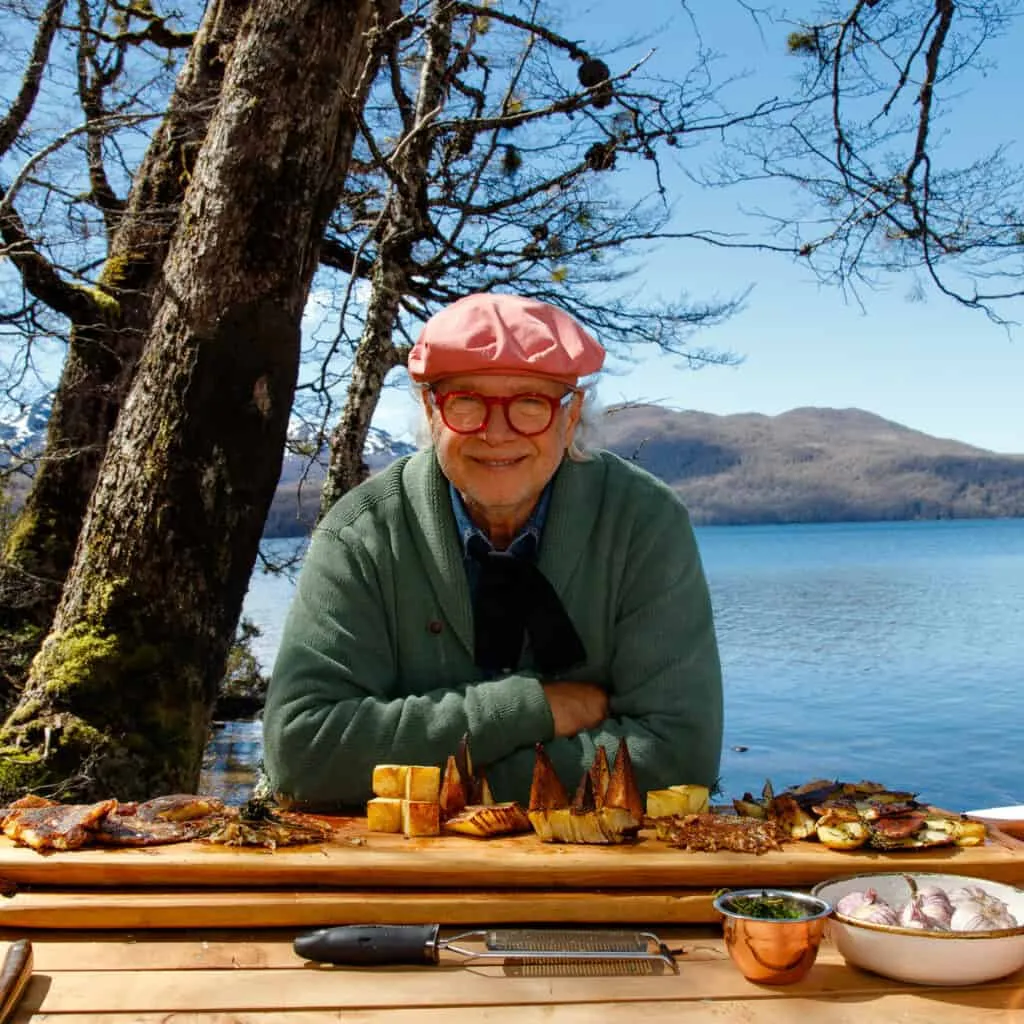
La Mágica
Mallmann was always something of a wanderer. He left home as a teenager, opened his first restaurant at the age of eighteen, then found his way to the kitchens of Paris, where he honed his craft under the watchful eyes of Paul Bocuse and Alain Chapel.
But fine dining, with its tweezers and fussy arrangements, never truly suited him. And so he turned his back on the starched napery of Paris and returned to Patagonia, to the traditional Argentine grilling and smoking techniques of his childhood.
Today, his empire stretches from Argentina to Uruguay, America to France. Find them from the bright lights of Buenos Aires to Uruguay’s hippie-chic fishing village of Jose Ignacio, and the tumbleweed hamlet of Garzon. Then there’s Los Fuegos at Miami’s Faena Hotel, sultry and extravagant; a foothold in the rolling hills of Villa La Coste in Provence; and of course, La Isla – the near-mythical private island where he hosts those willing to go the distance.
The Signature Mallmann Cooking Style
Mallmann has turned fire into an art form, developing seven signature techniques, each more theatrical than the last. There’s the ‘infiernillo’ – the little hell – where whole beasts are cooked between twin layers of flame, and ‘rescaldo,’ a slow-burn method that sees ingredients buried beneath embers. His book Seven Fires is a bible for devotees to his style of open-fire cooking.
Not only is he a master of his chosen medium, but his attention to service and mise en scene is just as keen. It’s rustic, yes, but also deeply refined.
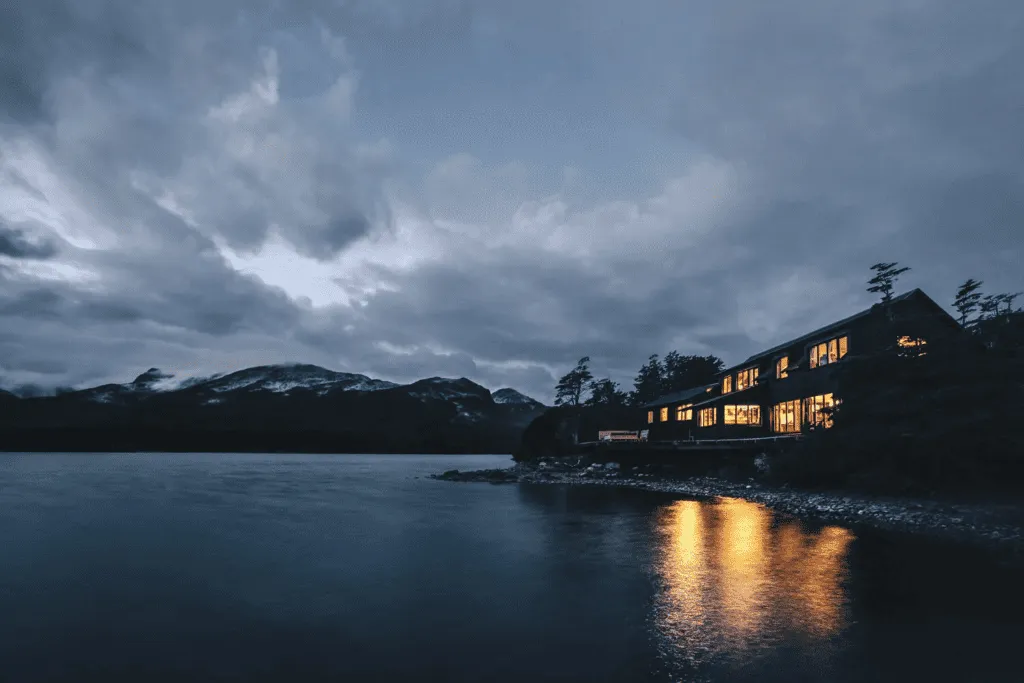
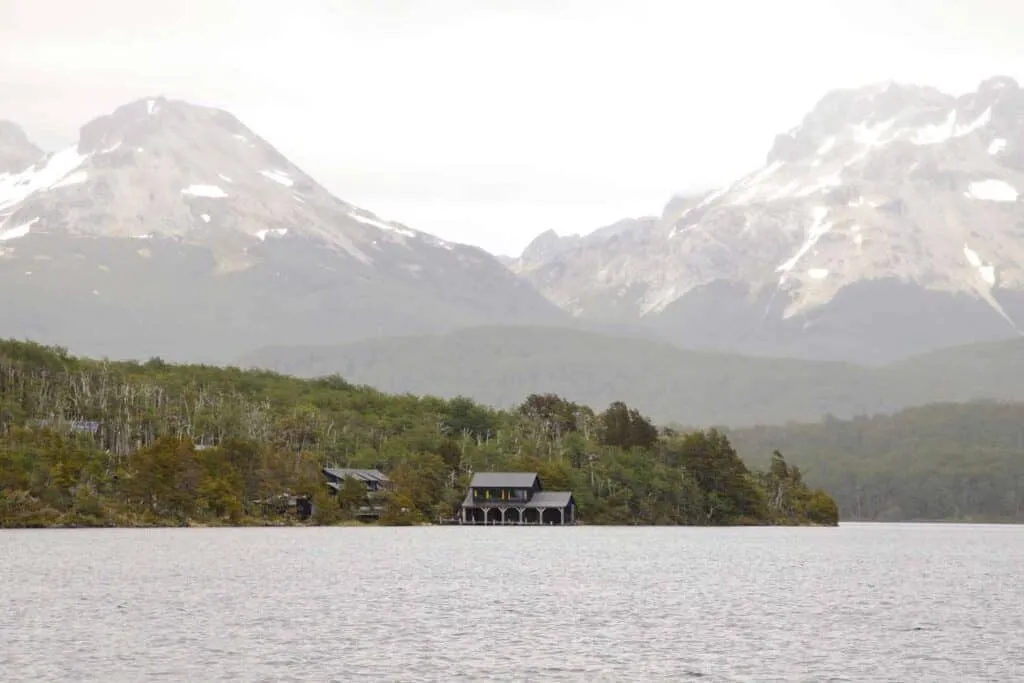
La Isla
And then there is La Isla, Mallmann’s private Patagonian island retreat that has become the stuff of legend.
Mallmann first discovered Lago La Plata some 30 years ago and decided to build a cabin there. The original home is now used by staff. Meanwhile, the newest abode, La Soplada (meaning ‘blown away’), was built for his Argentine TV series on outdoor cooking.
The island is gloriously remote. To reach the private retreat, visitors must fly from Buenos Aires to the port town of Comodoro Rivadavia. From there, they drive a dirt road for five or six hours, through fields of roaming cattle. Finally, they’ll embark on a bracing one-hour boat ride across a frigid lake.
On a few select dates per year, Mallmann receives small parties there for a week of wild cooking classes from the master himself.
Cabin Life
At the centre of it all sits La Soplada, a cabin as stark and striking as the land it inhabits. Blackened timber, panoramic windows, a crackling hearth, and shelves stacked with books that beg to be read by firelight. The silence is profound, punctuated only by the hiss of burning logs and the occasional splash of a fish breaking the surface of the lake.
Here, everything revolves around fire. Water is heated over flames. Food is cooked slowly, deliberately. Days are spent fishing in the glacial shallows, hiking through lenga forests, or simply sitting on the deck, watching the clouds shift over the mountains. Evenings bring long, wine-fuelled dinners that stretch into the early hours, stories traded across the table as the last embers glow in the darkness.
As part of the show, La Soplada cabin moved across Patagonia before finally retiring to La Isla.
Framed low against the horizon, the ink-black cabin is hemmed by lenga trees. Inside, there is an air of simple elegance. Shelves bulge with books and logs crackle in the hearth. The three bright bedrooms are replete with thick blankets. Large windows give on to Patagonia’s Cerro El Gorro mountain peaks and impenetrable forests reflect in the clear lake waters.
There is no WiFi or phone reception and lights run off generators. Fittingly, everything else runs off the power of fire – from heating water to cooking.
Related Stories
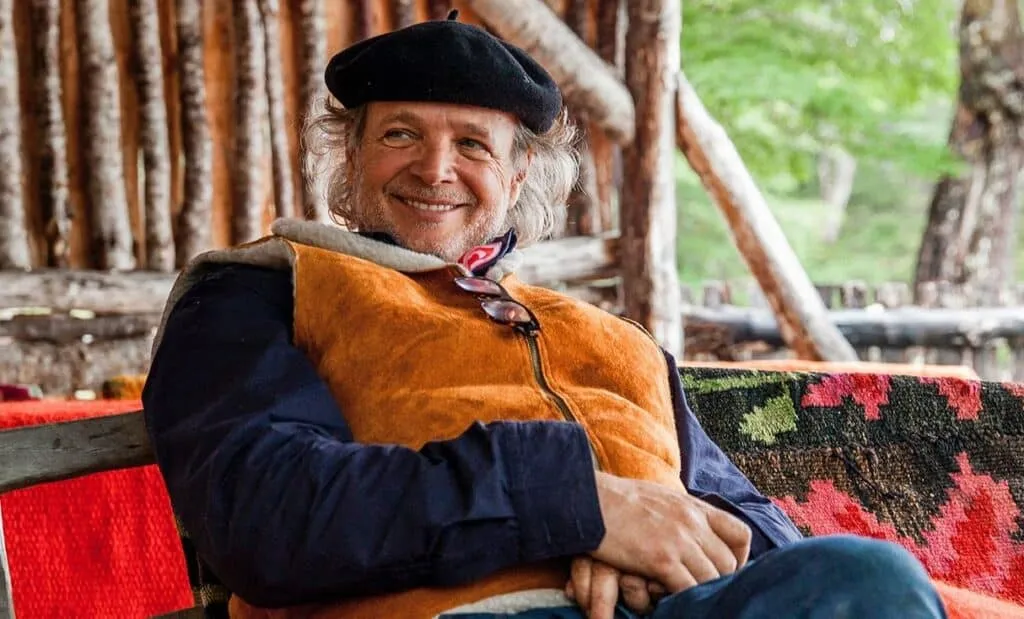
An Interview with Francis Mallmann, Argentina’s Legendary Open-Fire Chef
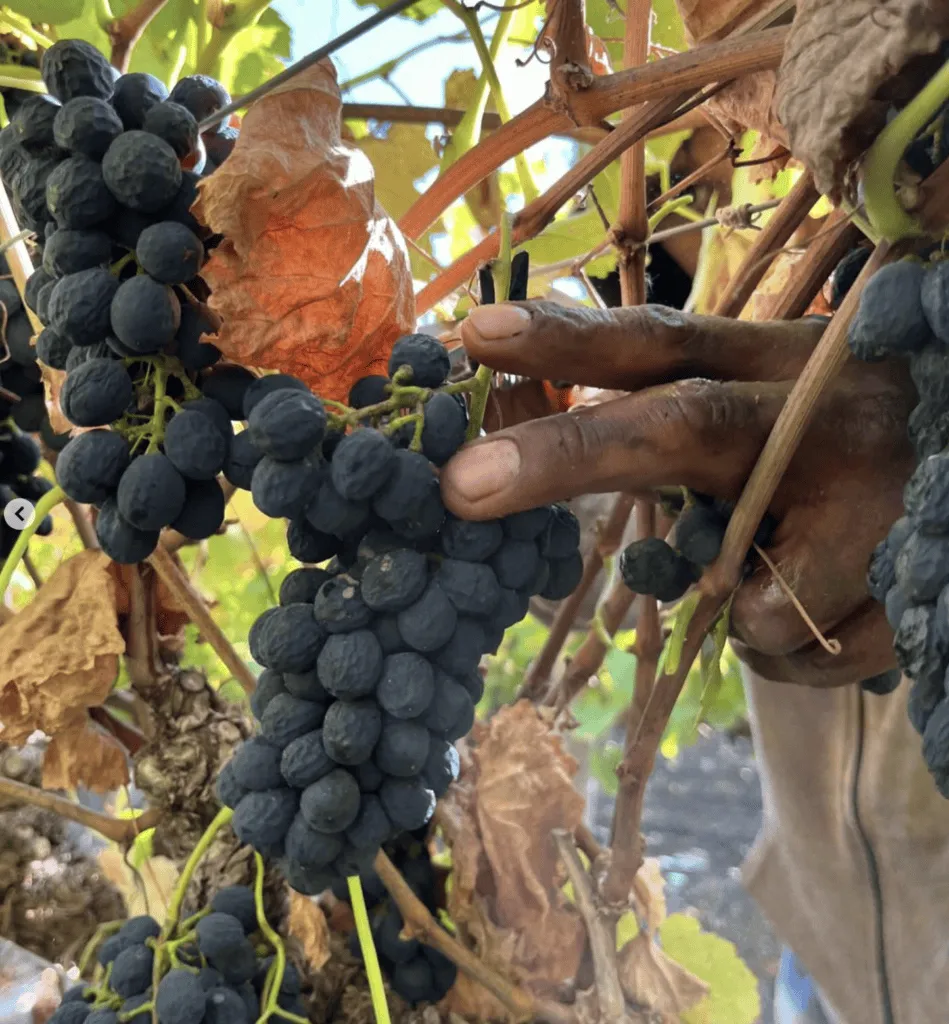
Wine Tasting in Argentina: Where to Go and What to Try
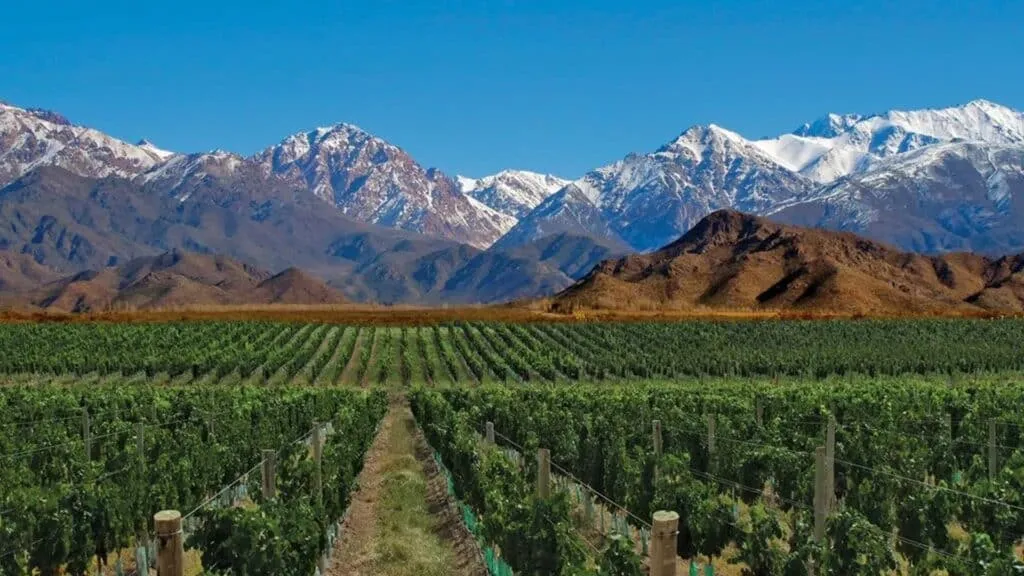
The Inside Track on Mendoza, Argentina: Where to Eat, Drink & Stay
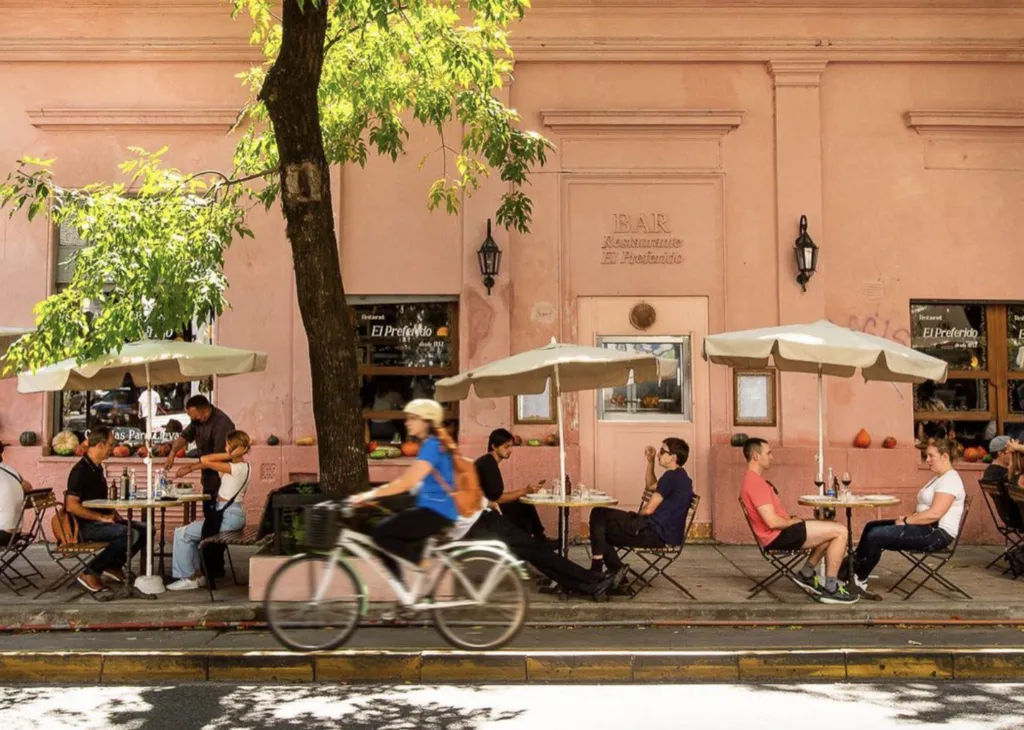
Where to Eat & Drink in Buenos Aires: A Guide by Sorrel Moseley-Williams
@plansouthamerica
Epicurean
